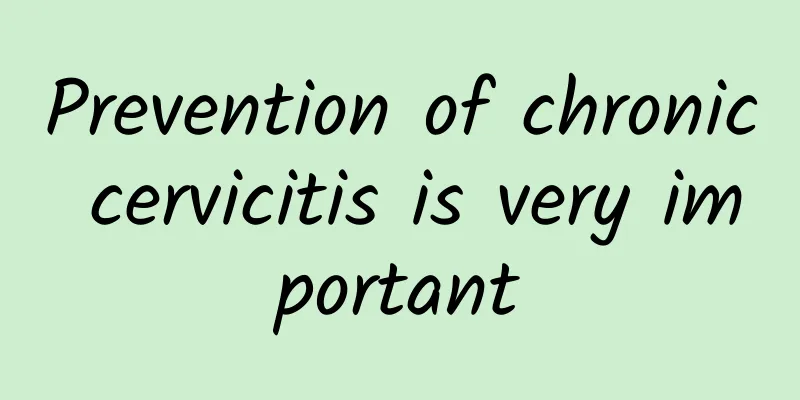Can people with diabetes eat desserts? American experts: Drink a spoonful of this before eating sweets to easily lower blood sugar

|
Does almost everything that’s going on in your body have to do with blood sugar? Sleep, appetite, mood, energy, skin, weight - controlling your blood sugar with simple, science-based methods can improve your health and slow down aging. Wild swings in blood sugar can make us sick. Maintaining a stable blood sugar curve can reduce the amount of insulin released in the body and reduce the incidence of obesity, heart disease, diabetes and fatty liver. As for how to control blood sugar? American biochemist Jesse. Jessie Inchauspe, in her new book "90% of Diseases Can Be Cured by Controlling Sugar", shares the following two tips: Tips for controlling sugar intake: It is better to have dessert after meals rather than sweet snacksOnce we finish eating, we usually quickly start washing the dishes, returning to work, or continuing to do whatever we were doing. However, our organs are just beginning to work once we’ve eaten our fill—and they continue to work for an average of four hours after we’ve taken our last bite of food. This busy time is what we call the "after-eating" or post-meal state. What happens in the postprandial state? The postprandial state is the time of day when our most dramatic hormonal and inflammatory changes occur. Blood rushes into the digestive system and hormones flood in to digest, sort, and store the molecules in the food we just ate. Some systems are put on hold (including the immune system), while others are stimulated (such as fat storage). Insulin levels, oxidative stress, and inflammation increase. The higher the blood sugar or fructose spike after a meal, the more the body has to deal with the postprandial state because it has to manage more free radicals, glycation, and insulin release. It's normal to have a post-meal state, but it takes time for the body to process it. It takes more or less energy to process the food we eat during a meal, and how much energy is required depends on the amount of glucose and fructose we have just consumed. There are 24 hours in a day, and we usually spend about 20 hours in a postprandial state because we eat an average of three meals a day, plus two snacks. Life wasn't like this in the past: until the 1980s, people ate only two meals and didn't often snack in between, so they were only in the postprandial state for 8 to 12 hours. Snacks are a 1990s invention, as are low-rise jeans (think twice before wearing them). Things are much easier when our bodies are not in a post-meal state. The organs then take over the cleanup duties, replacing damaged cells with new ones and cleaning out the body's systems. For example, if we haven't eaten for a few hours, our small intestine will make a gurgling sound, indicating that the emptying digestive tract is cleaning the lining. When we are not in a post-meal state, insulin levels drop and the body can go back to burning fat instead of storing it. You may have heard that people in prehistoric times could go for long periods of time without food. This is because we can easily switch between using glucose as fuel (from our last meal) and using fat as fuel (from our fat stores). As mentioned earlier, this ability to switch is called metabolic flexibility. It is the primary measure of metabolic health. To increase your metabolic flexibility, eat larger meals at mealtimes so you feel fuller longer and don't need to snack every one to two hours. This is different from what most people think, because we usually think that "eating small meals frequently, six times a day" is better than eating two or three large meals. However, research results have proven this idea to be wrong. To this end, scientists in the Czech Republic conducted tests on patients with type 2 diabetes in 2014. They determined a daily calorie quota and had one group of subjects consume those calories in two large meals, while the other group consumed the same amount of calories in six smaller meals. Not only did the group that ate just two meals lose more weight (3.6 kg in three months, while the other group only lost 2.3 kg), but they also saw improvements in key markers of their overall health: lower fasting blood sugar, less liver fat, less insulin resistance, and healthier pancreatic cells. The same calories consumed can have different effects. (Here comes my favorite quote: Calories aren’t everything.) Another way to improve your metabolism is through so-called intermittent fasting, where you fast for 6, 9, 12 or 16 hours at a time, or cut back on calories a few days a week. Why do we prefer dessert after meal? When we skip snacking, our systems aren’t in a post-meal state for longer. This gives the body time to do the cleansing mentioned above. Eating dessert after a meal can slow the corresponding blood sugar spike because eating sugars and starches last, after other foods (rather than eating them first or consuming them as a snack), allows them to move more slowly from the sink to the pipes. So whether you want a piece of fruit, a bowl of smoothie, a toffee or a cookie, do it after a meal. Tips for controlling sugar: drink some vinegar before eatingIt's simple, but the effect is significant. Drinking a tablespoon of vinegar mixed with a tall glass of water a few minutes before eating sweets can inhibit the subsequent surge in blood sugar and insulin. In this way, you can control your appetite. As long as you can suppress your hunger, you can burn more fat. You don't have to spend a lot of money either: a bottle of ordinary grocery store vinegar costs less than £2 and contains more than 60 tablespoon servings. That's a steal! Vinegar is the sour liquid that results from the fermentation of alcohol, thanks to common bacteria that convert it into acetic acid. These bacteria have been around for eons and can even survive in the air we breathe. If you leave a glass of wine on the table and then go on vacation, when you come back in a few weeks, the wine will turn into vinegar. Common vinegars include rice vinegar, white wine vinegar, red wine vinegar, sherry vinegar, balsamic vinegar, and apple cider vinegar. Apple cider vinegar is the most popular choice for this trick, as most people find that it tastes best when diluted in a tall glass of plain water. However, all vinegars have the same effect on blood sugar, so feel free to choose the vinegar you like. (Note that lemon juice won't have the same effect because it contains citric acid, not acetic acid.) Although people have been drinking vinegar for centuries, only recently have scientists finally understood the mechanism behind its health benefits. Over the past decade, dozens of research teams around the world have examined the effects of vinegar on the human body. Here's how most studies are conducted: You recruit anywhere from thirty to a few hundred subjects. Half of the subjects were asked to drink a large glass of water with one to two tablespoons of vinegar before meals, while the other group drank a placebo, which was something that tasted like vinegar but was not vinegar, and the experiment continued for three months. Track their weight, blood markers5 and body composition. The research team ensured that both groups ate the same diet and exercised, and also stayed on the couch, grabbed popcorn and watched TV. The researchers found that the subjects who drank vinegar before meals for three months lost about 0.9 to 1.8 kg in weight, and their visceral fat, waist and hip circumference, and triglyceride levels also decreased. In one study, two groups of subjects tried a strict weight loss diet, and the group that drank vinegar lost twice as much weight (about 5 kg vs. 2.3 kg) despite consuming the same number of calories as the group that did not drink vinegar. A Brazilian research team believes that vinegar may have an effect on fat loss and therefore be more effective than many thermogenic supplements touted as fat burners. The benefits of vinegar are many. For people without diabetes, those with insulin resistance, or those with type 1 or type 2 diabetes, drinking just one tablespoon of vinegar per day can significantly lower blood sugar levels. The effect has also been seen in women with polycystic ovary syndrome: In one small study (which would certainly need to be repeated several times to confirm this conclusion), four out of seven women who drank a vinegar drink daily for 40 days resumed their periods. The benefits of vinegar are many. For people without diabetes, those with insulin resistance, or those with type 1 or type 2 diabetes, drinking just one tablespoon of vinegar per day can significantly lower blood sugar levels. All of the subjects experienced the following changes: When they drank vinegar before eating a carbohydrate-rich meal, their blood sugar spike after the meal was reduced by 8% to 30%. How did this happen? We have an important clue: drinking vinegar before eating can reduce the amount of insulin (by about 20% in one study). This tells us that drinking vinegar will not increase the amount of insulin in the body to smooth out the blood sugar curve. This is a very good thing. You can actually give someone an insulin shot or give them a pill or drink to flatten the glucose curve because certain medications or drinks cause a person to release more insulin into their system. This is because the more insulin there is in the body, the harder the liver, muscles, and fat cells work to remove the excess glucose from the blood and quickly store it. However, while insulin lowers blood sugar levels, it also increases inflammation and causes people to gain weight. What we really want is to flatten the blood sugar curve without increasing insulin in the body. That's what vinegar does. This article comes from: Gao Baoshu Edition "90% of diseases can be cured by controlling blood sugar: choosing the right food, eating in the right order, and controlling the portion size can reverse the blood sugar balance of the body" |
Recommend
Will ectopic pregnancy always cause bleeding? Not necessarily
The incidence of ectopic pregnancy is very high n...
Can I eat before abortion?
Generally speaking, artificial abortion refers to...
How to check ovarian cysts
How to check ovarian cysts? Patients need to unde...
Taiwan is Asia's fat husband father refuses big "belly"
Chiu Shu-ti, director of the National Health Bure...
Will 10,000 steps a day make you thinner? 5 weight loss concepts that will subvert your thinking
What would you do to combat obesity? Many people ...
Can infection after abortion be cured?
Can the infection after abortion be cured? This i...
A thin face depends on "guts"! 6 Korean massage techniques
The essence of the effective Korean face-slimming...
The more obvious symptoms of pelvic inflammatory disease are usually lower abdominal pain.
The more obvious manifestation of pelvic inflamma...
Is it normal for girls to have less vaginal discharge? It depends on the specific situation of the girl.
For women, leucorrhea is something that must be t...
What are the types of pelvic inflammatory disease?
Pelvic inflammatory disease is a common gynecolog...
How many days of pregnancy is suitable for abortion? What should I pay attention to after abortion?
Nowadays, many female friends in society have une...
What foods should not be eaten to prevent threatened abortion
There are many women who have threatened miscarri...
What should I do if I have uterine fibroids? Treatment methods for uterine fibroids
Uterine fibroids are not a very serious gynecolog...
What should I do if I have ovarian cysts and my menstruation is rare? Can I take medicine to regulate menstruation?
Many female friends with ovarian cysts will caref...
Can I have a natural birth with an ovarian cyst? Does I need a caesarean section?
Can I have a natural birth with an ovarian cyst? ...









